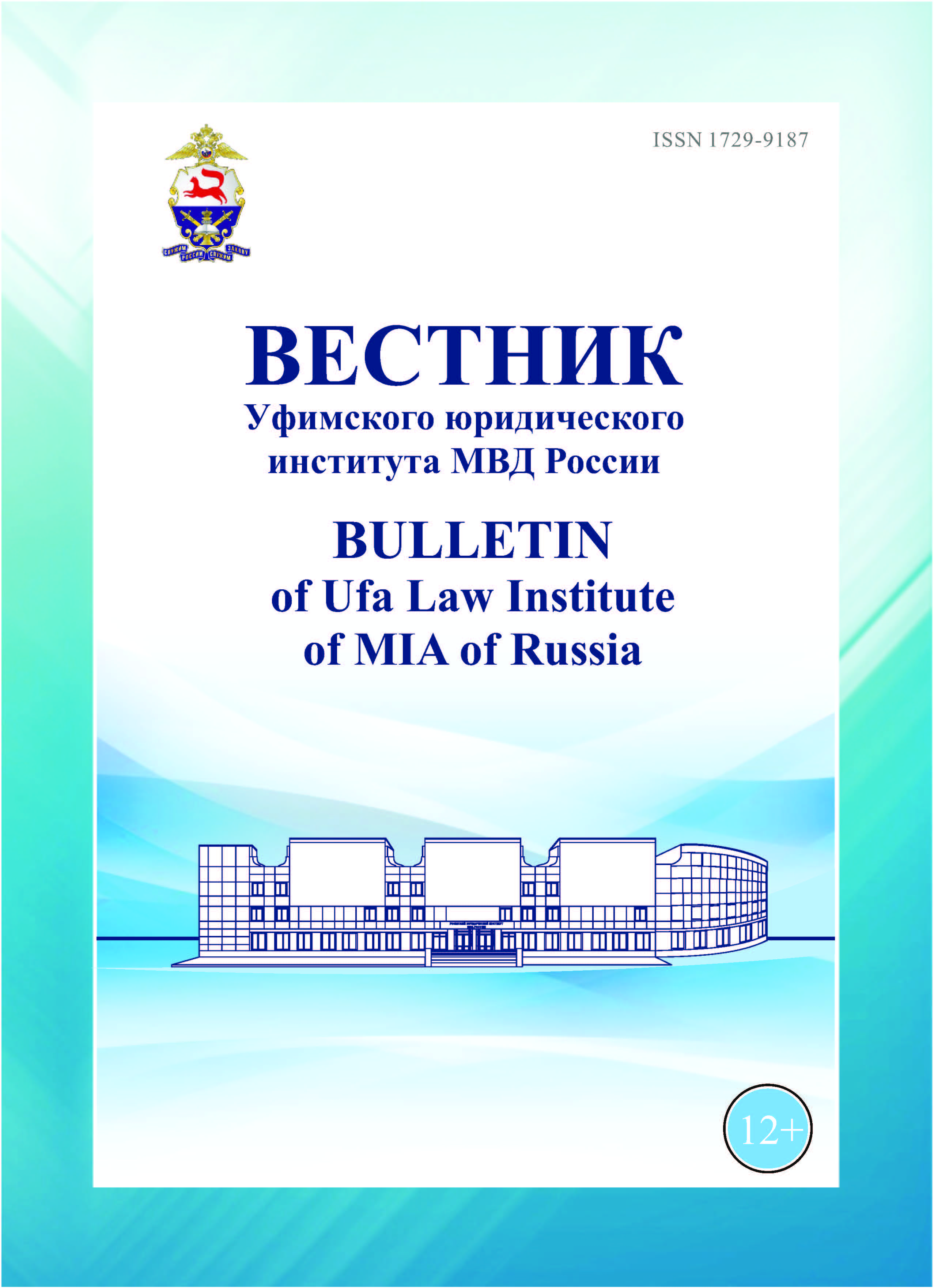UDC 343.915
Juvenile delinquency should reasonably be considered one of the indicators of the social development of the state. However, the high latency of this type of crime complicates the process of establishing its real dynamics and actual level. In this article, the authors attempt to study certain aspects of juvenile delinquency at the present stage of development of Russian society. Among the social factors influencing the formation of juvenile delinquency, the authors consider family problems, the negative impact of the environment, the lack of leisure activities, as well as the negative impact of information and telecommunications networks and mass media. The study focused on statistical data on the level of juvenile delinquency in Russia. The methodology of the study consisted of general scientific methods: analysis, synthesis, induction and private scientific methods of comparing data on the state of the studied type of crime. The authors considered some law enforcement issues, proposed ways to solve them in order to prevent juvenile delinquency.
juvenile delinquency, criminality, criminal identity, prevention, prevention of criminal behavior
1. Santashov A. L. Criminological and criminal-legal aspects of countering juvenile delinquency // Russian investigator. 2021. No. 6. P. 61–63. (In Russ.)
2. Boltenko N. N., Kondratkova N. V., Cherkasova E. S. Suicidal behavior of minors: a psychological and criminological approach to the implementation of the investigation // A Russian investigator. 2021. No. 4. P. 68–71. (In Russ.)
3. Malyshev A. N., Zaryaev V. A. Prevention of recidivism of minors // Russian justice. 2022. No. 4. P. 73–81. (In Russ.)
4. Shkhagapsoev Z. L., Gutieva I. G. Actual problems of prevention and combating manifestations of terrorism in the youth environment // Gaps in Russian legislation. 2021. Vol. 14. No. 2. P. 125–128. (In Russ.)
5. Romanovskaya I. V. Features of the determination of juvenile delinquency // Eurasian Legal Journal. 2022. № 1 (164). P. 397–398. (In Russ.)
6. Lebeshev I. S. Prevention of juvenile delinquency as a form of combating recidivism // Law and the state: theory and practice. 2019. No. 12 (180). P. 169–171. (In Russ.)
7. Konovalov I. A. Radicalization of youth: basic models and prevention. Foreign experience // Psychology and pedagogy of official activity. 2021. No. 1. P. 36–42. (In Russ.)
8. Perception of extremism and other information threats in the educational environment // Review of the NCPTI. 2022. No. 1 (28). P. 19–28. (In Russ.)
9. Opinion of the State Council on the arrangement of correctional shelters for juvenile delinquents // Complete Collection of laws of the Russian Empire. Collection 2. Vol. 41. 2nd ed. St. Petersburg, 1868. (In Russ.)









